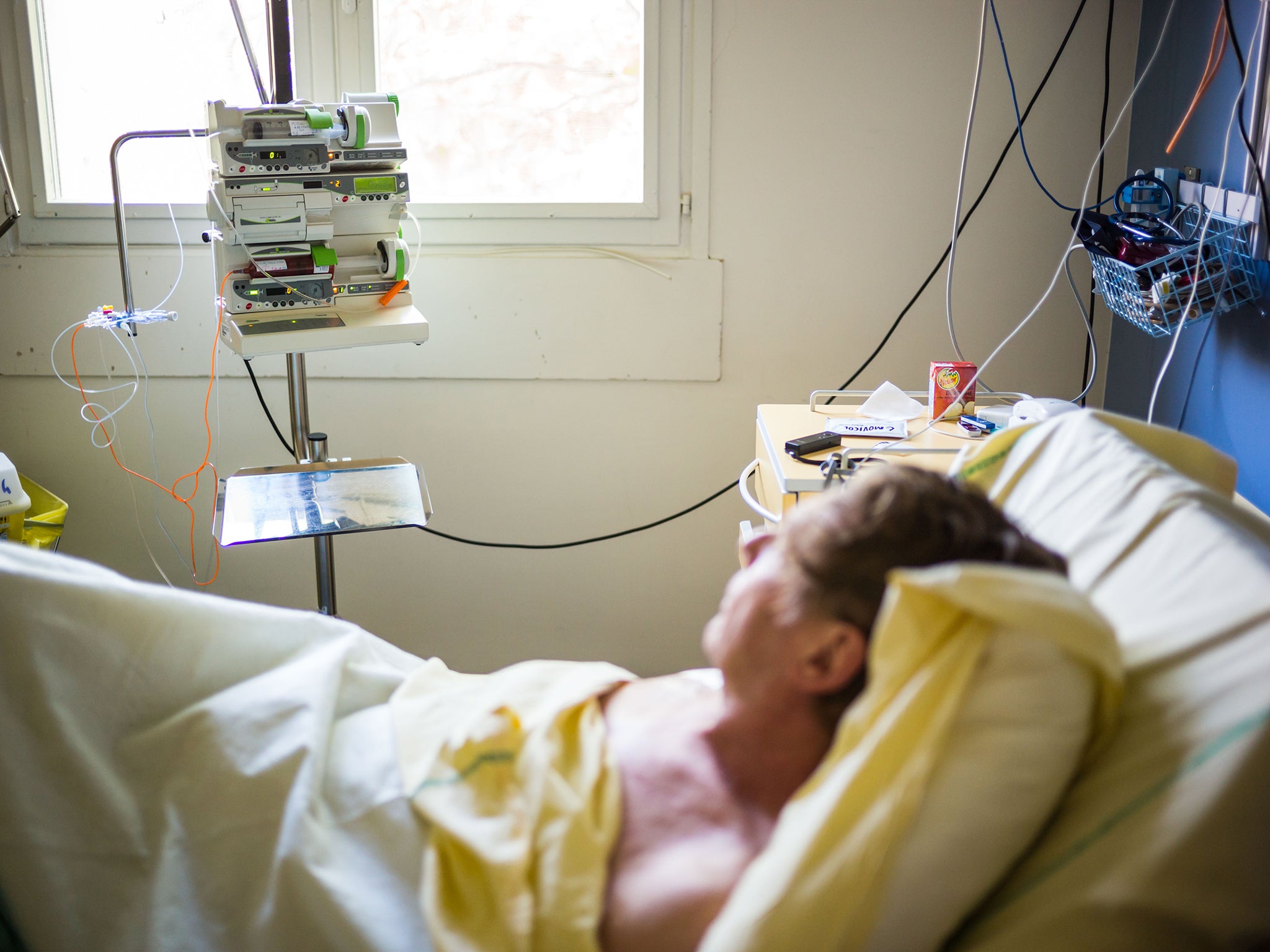Fear of talking about dying 'leading to thousands of traumatic hospital deaths'
Cancer charity says there is a 'crisis of communication' in UK over dying

Thousands of cancer patients would prefer to die at home but are forced to suffer “traumatic” deaths in hospital, according to Macmillan.
Taboos around talking about death are fuelling a “crisis of communication” in the UK that prevents people from planning their final days, warned the cancer charity in a new report.
Research by the organisation found that while 38 per cent of people who die from cancer die in hospital, just one per cent would choose to do so, with 64 per cent saying they wanted to die at home.
Adrienne Betteley, Macmillan’s head of health and social care, told The Independent where someone would like to die is “a hugely personal issue”.
“If someone dies in hospital when they would have preferred to die at home, it can be traumatic for them, or for their friends and family,” she said.
“A lot of people would prefer to spend their last days in familiar surroundings, with people they know and in a non-clinical environment, like in their own home.”
More than 62,000 people die in hospital from cancer each year, but previous studies have shown most people would prefer to die at home due to fears of suffering pain and dying in an unfamiliar environment.
Around a quarter of more than 1,800 people with cancer surveyed by Macmillan said they thought about their own death “constantly” or “often”, but more than a third said they had not shared these thoughts with anyone.

Ms Betteley, who has worked as a nurse in care homes, said fears over discussing dying could prevent people from making preparations for their own death.
“Our relationship with death has changed enormously over the years. In the Victorian times, most people would die at home, so we were more familiar with death and used to seeing it – and in some societies, this is still the case,” she said.
“As we’ve become less exposed to death, I believe we’ve become more afraid of it and it’s grown into a taboo that we don’t want to talk about.”
Macmillan’s survey found that 64 per cent of people think British people do not talk enough about death.
The charity Citizens Advice said last year that the number of enquiries it received about people who had died without making a will had more than doubled over the past five years.
In a number of areas, ‘death cafes’, where people meet to talk about dying, are being held in an attempt to challenge reluctance to talk about the topic that affects everybody but is often avoided.
Penny Hall, who is organising a festival about death and dying in Cambridge, told local press British attitudes to the end of life are often “sanitised” and secretive.
She said attending death cafes had made her “aware of my own mortality”, adding: “It's often quite relieving. We're not usually allowed to talk about these things.“
Join our commenting forum
Join thought-provoking conversations, follow other Independent readers and see their replies
Comments
Bookmark popover
Removed from bookmarks